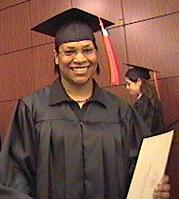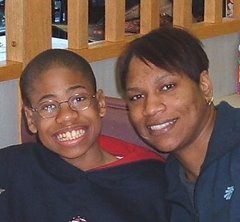Indeed, when Van de Water probed the brain's disease-deflecting armor in 30 autistic children ages 2 to 5 and 26 without the disorder, she detected a variation in the way specialized messenger molecules called cytokines react to bacteria and other health threats in the two groups.
These immune proteins, which normally get into gear when a response is needed to injury or irritation, instead appear to be constantly "switched on," or inflamed, in individuals with autism, reported another team.
The finding "backs up what we're seeing in the peripheral blood, that perhaps there is a change in these kids and the cytokine production in the brain is altered."
Cytokines are known to affect slumber, and sleep disorders are a common complaint of individuals with autism. child-autism-parent-cafe.com
Click here for more info
Forget what you haven't heard… Family site shares news, resources, announcements and free or low-cost ways to help us manage day-to-day living with autism.
Crystal Brown

About Me

- Crystal
- AutismConcepts.com and Child-Autism-Parent-Cafe.com share a large collection of useful autism information, resources, and how-to articles written by authors who are touched by autism, offering practical solutions to families. Particularly minority and underserved families and caregivers who may not know what to do or where to go for help.
MJ And Me

Blog Archive
-
▼
2006
(213)
-
▼
November
(10)
- Free Eyeglasses DEC. 5th
- Ped Med: The biological factor in autism
- Sad News from the Autism Research Institute
- Communicating With Your Child's Doctor
- NYS Dept. of Ed Update on Behavioral Interventions
- Satisfaction with Primary Health Care Received by ...
- U.S. Study: Children show hardening of arteries
- Industrial chemicals linked to autism, ADHD
- NCLB and IDEA: What Parents of Students with Disab...
- "Independence Beyond Borders: A Teleconference for...
-
▼
November
(10)